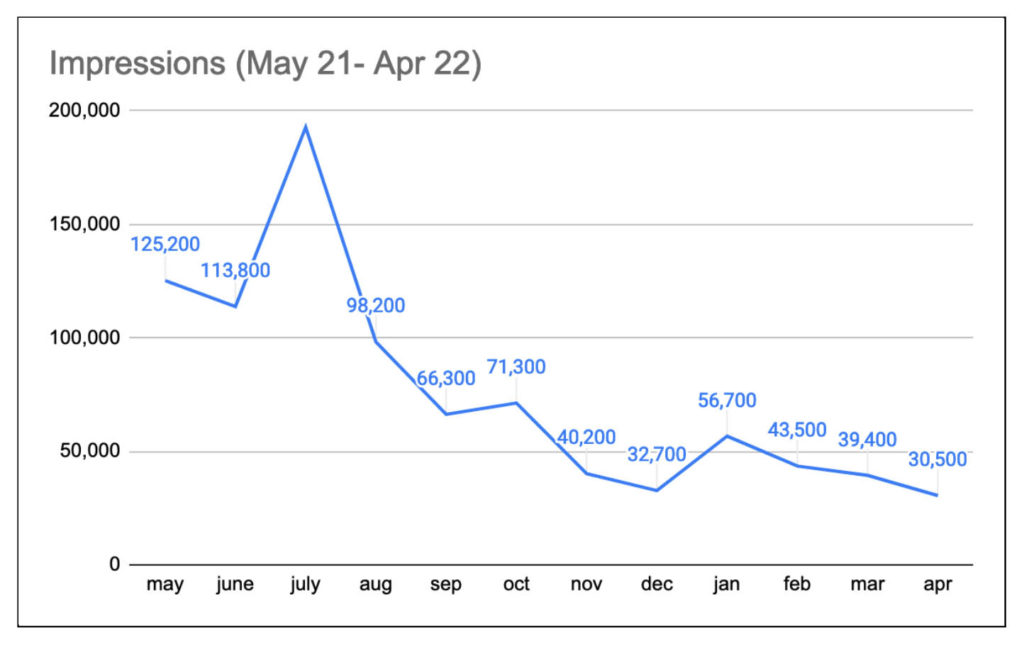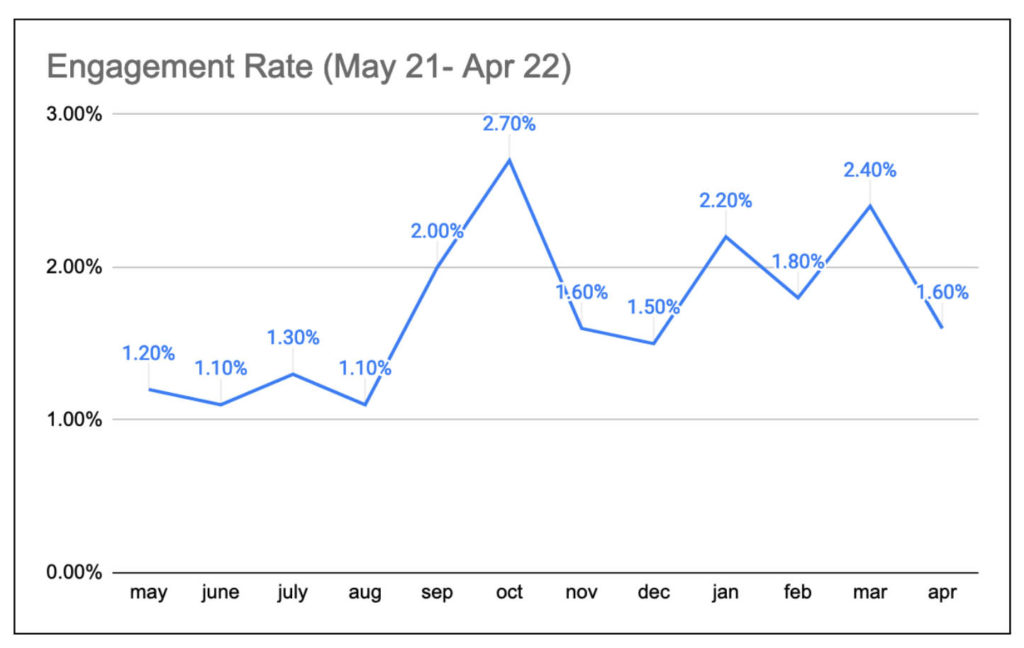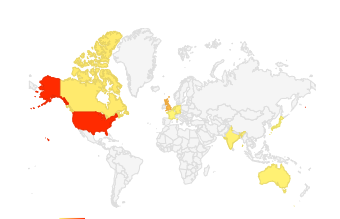Editor’s note: Today’s post is by The Scholarly Kitchen Cabinet (the SSP committee responsible for The Scholarly Kitchen), with special thanks to David Crotty, Simon Holt, Haseeb Irfanullah, Sue Kesner, Alice Meadows, Roger Schonfeld, and Simone Taylor; as well as Melanie Dolechek and Jacklyn Lord on the SSP staff.
Last year we carried out our second readership survey, seeking to learn more about who reads The Scholarly Kitchen (TSK) and why, your perceptions of the blog, and more. Around 2,750 of you responded, and the high-level results were presented at last year’s Annual Meeting. There was a lot for us to digest, both positive (e.g., about two thirds of you find TSK extremely or very relevant to your professional needs) and less so (e.g., only around half of you feel the Chefs provide a good balance of opinions).
Since then, the Kitchen Cabinet (the SSP committee responsible for TSK) has been working to address some of the main issues you raised, especially in terms of the need to make the blog more diverse and inclusive in every way. Diversity is one SSP’s core values, and this is something that both the society and TSK have been working to improve for some time now. We have made some real progress, while recognizing that there is still a long way to go.
One way that TSK has addressed the need to increase diversity and inclusion is by encouraging posts by Guest Chefs. This is something that survey respondents clearly welcome: they appreciate the additional perspectives provided by guest posts, recognize their quality and relevance, and are likely to read them. Guest posts have nearly doubled from 16% of total posts in 2018, when we carried out our first readership survey, to 30% so far in 2022. As well as bringing in more voices, these posts also expand TSK’s geographical and topical diversity, another important area for TSK. For example, while the regular Chefs represent just four countries, in 2021, our Guest Chefs came from 11 countries. And they’re writing about a wide range of topics — from scientific publishing in Latin America to cybersecurity and academic libraries just in the past couple of months.
Another important step towards increasing diversity, equity, inclusion, and accessibility in TSK is the recent appointment of Dianndra Roberts as our first Associate Editor for Diversity, Equity, Inclusion, and Accessibility. SSP’s DEI Committee and the Kitchen Cabinet worked together to recruit for this position, and it was a difficult decision as we were hugely impressed with the caliber of the candidates. We look forward to working closely with Dianndra to achieve the goals she outlined for the role in her inaugural post: “My hope is that I can use this platform to spark thought-provoking conversations, bring awareness to key issues, and educate others on DEIA issues — as well as giving a platform to those who have a voice that needs to be amplified.”
Engaging with our readers is another area of focus for TSK, both through the comments on the blog itself and on social media. Commenting on the blog itself has been decreasing for some time, with the conversation increasingly moving to social media — primarily Twitter, where TSK currently has about 25.7k followers, up from 25.5k at the end of 2021, and 22.7k in 2020. Annually, the number of people who see TSK tweets and interact with them (typically sharing) has also decreased, as Chefs — including Editor-in-Chief, David Crotty, who now has his own account — increasingly engage via their personal Twitter accounts. Despite the decrease in overall engagements, the proportion of active followers has grown, indicating the audience that continues to interact with TSK on Twitter is dedicated and engaged, as you can see from the charts below.


As part of SSP’s strategic goal to engage with our global community, we also hope to increase readership of TSK outside of the US. So far this year, 38% of page views from the top 10 countries are from the US and 62% are from other countries, compared with 41%/59% for 2021. In addition, we will soon be launching an effort to provide different language translations of TSK posts, starting with some in Spanish — stay tuned for more on this soon.
Looking ahead, the Cabinet is actively working on ways to bring in new Chefs in order to make TSK a more diverse and vibrant group for you to read and interact with, including being more transparent about how new Chefs are recruited. And SSP is considering investing in developing our own taxonomy, which will make it easier both for readers to discover the content they’re interested in, and for us to ensure that we are covering a broad range of topics and perspectives equitably.
Discussion
8 Thoughts on "The Scholarly Kitchen Readership Survey One Year On"
My impression is a good portion of the declining engagement with readers is fewer comments by the Chefs. Scrolling through recent posts shows often a comment or two will be made on a post with no response from the blog author or other Chefs. Posts from a several years ago will more commonly have comment strings that would go on for days, exceeding the original post in length. The Chefs would argue with each other and the readers of various walks (civilly of course) and it was highly engaging. Twitter seems like mostly retweets and likes and occasional short remarks. Not exactly substantive debate of issues. Long form blogs seem to be declining broadly (data-free impressions) and people move on. I hope my perception of waning enthusiasm by the SK chefs in engagement is misplaced.
Yes, it was mostly civil, but sometimes not, and a lot of the feedback we received over the years has been that people were hesitant to comment as they were afraid they’d be torn apart. We’ve made a major effort to moderate the tone of the comments, and reject (or edit with the commenter’s permission) anything that’s more of a personal insult than a reasoned argument. It’s definitely less entertaining than watching a brutal flamewar, but hopefully creates a more inclusive environment. Some of the more combative Chefs have also left the blog over the years as well.
As a reader, I don’t feel comfortable commenting. Both due to previous Chefs making it a poor environment, but also due to comments simply not being posted.
All comments on The Scholarly Kitchen are moderated. Details of our comment moderation policy can be found here:
https://scholarlykitchen.sspnet.org/2016/05/30/on-comment-moderation-or-why-has-my-manifesto-disappeared-into-the-ether/
(although since that was posted, I’d probably add in a further section on offensive and/or racist comments which we’ve had to deal with in recent years)
If you leave a comment and it doesn’t appear on the site (and you don’t think you’ve violated one of our policies), then please contact us at scholarlykitchen@sspnet.org
We receive an inordinate amount of spam comments, and sometimes legitimate comments fall into our spam filter, so let me know and if that’s the case, I can fish yours out.
I just to say I really enjoy TSK. I check in here every week day and I read most of the articles.
Don’t believe the naysayers on Twitter who say you’re biased. I’ve seen you offer them the opportunity to guest post here again and again. It’s really telling that none of them have to guts or writing talent to follow through.
Thanks for another great year and I look forward to the next one.
I recently found the Kitchen and feel like it’s a very valuable information source for me as an academic librarian in Germany. No complaints here.
I stopped engaging because of a particular reason: whenever an employee perspective (of for-profit publishers) is presented in comments, people shut down the topic in almost an activist stance against the employees. Don’t we as such employees have the voice in SK? There is no sincere discussion on the future of employees when there are calls for closing, shutting or canceling publishing practices by major publishers. We too are people, and we cannot change many things we would love to see changed. But that only leads to us being ridiculed or canceled by one-sided commenters who found their fandom in some publishing model or some kind of publisher fitting their political framework. The loudest one wins, as usual!
I’m sorry to hear that this has been your experience Desieditor. Having worked for a large commercial publisher in a former life I’ve had similar experiences (though not on the Kitchen) and I agree that we should be careful not to conflate individuals with their organizations. Thanks so much for raising this – it’s something we should all be more aware of when commenting. And I hope you’ll join the conversation again in future!



